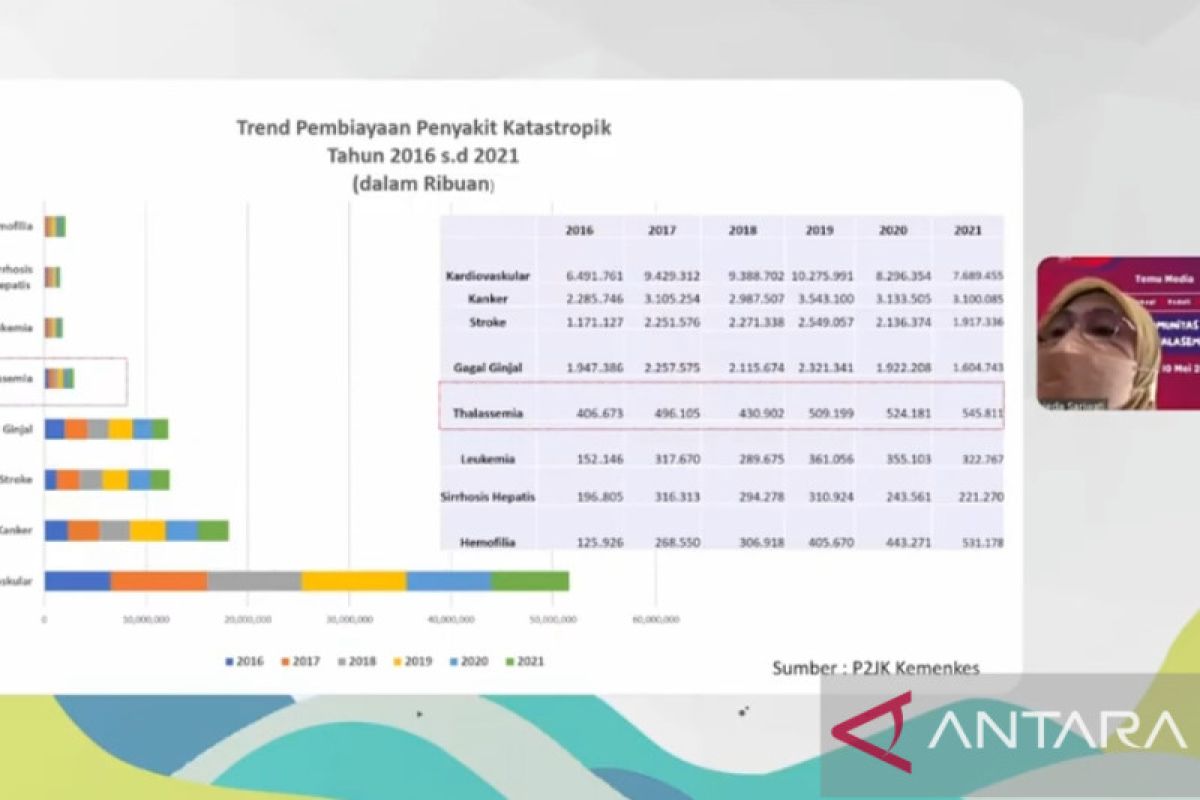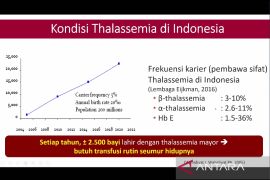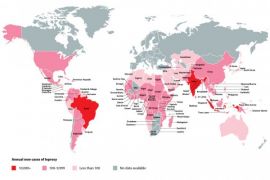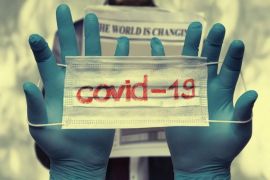According to the BPJS Kesehatan data in 2020, health financing liabilities had increased every year from 2014 to 2020Jakarta (ANTARA) - The Indonesian government has disbursed a total budget of Rp2.78 trillion (US$191 million) for thalassemia treatment, blood transfusions, and medicines in 2020, according to a Health Ministry's official.
"According to the BPJS Kesehatan data in 2020, health financing liabilities had increased every year from 2014 to 2020," the ministry's acting Director of Non-communicable Diseases Prevention and Control, Elvieda Sariwati, stated during a virtual press conference here on Tuesday.
Sariwati noted that thalassemia ranks fifth as the most budget-depleting non-communicable disease after heart disease, kidney failure, cancer, and stroke.
Thalassemia is an inherited genetic disease characterized by a disorder in hemoglobin production that necessitates people with thalassemia to receive blood transfusions for life.
Related news: Minister confirms 15 suspected cases of acute hepatitis in Indonesia
"The disease can be prevented by early detection," she remarked.
Early detection is also essential to prevent a union between two people, who are thalassemia carriers, that can bear a child with thalassemia, she added.
Thalassemia can appear in an offspring if their parents are both thalassemia carriers, the acting director remarked while adding that a person with thalassemia will appear physically sound with no visible symptoms, as the disease can be detected only through blood sampling and hemoglobin analysis.
Elvieda pointed out that the Indonesian Thalassemia Foundation's data had recorded a total of 10,973 thalassemia cases by June 2021 -- an increase from 4,896 cases reported in 2012 -- thereby indicating the disease's significant increase in Indonesia.
Related news: Health facilities strengthened to tackle acute hepatitis in children
According to the Eijkman Institute research in 2012, some 2,500 babies out of Indonesia's population of 240 million are born with thalassemia major, she stated.
The acting director then explained that there were three types of thalassemia: major, intermedia, and minor.
Despite the fact that persons with thalassemia major require routine blood transfusions for life, persons with thalassemia intermedia require only occasional blood transfusions, and people with thalassemia minor, apart from being physically and mentally sound, will also require no blood transfusion, she expounded.
"Thalassemia is currently not a treatable disease, but we can forestall the disease by preventing marriage between disease carriers or prevent pregnancy in a thalassemia-carrier person that can be spotted through early detection," Elvieda remarked.
Related news: Health Ministry forecasts 2,500 infants born with thalassemia annually
Related news: Health Ministry to ready West Papua hospital as referral hospital
Translator: Andi Firdaus, Nabil Ihsan
Editor: Fardah Assegaf
Copyright © ANTARA 2022












